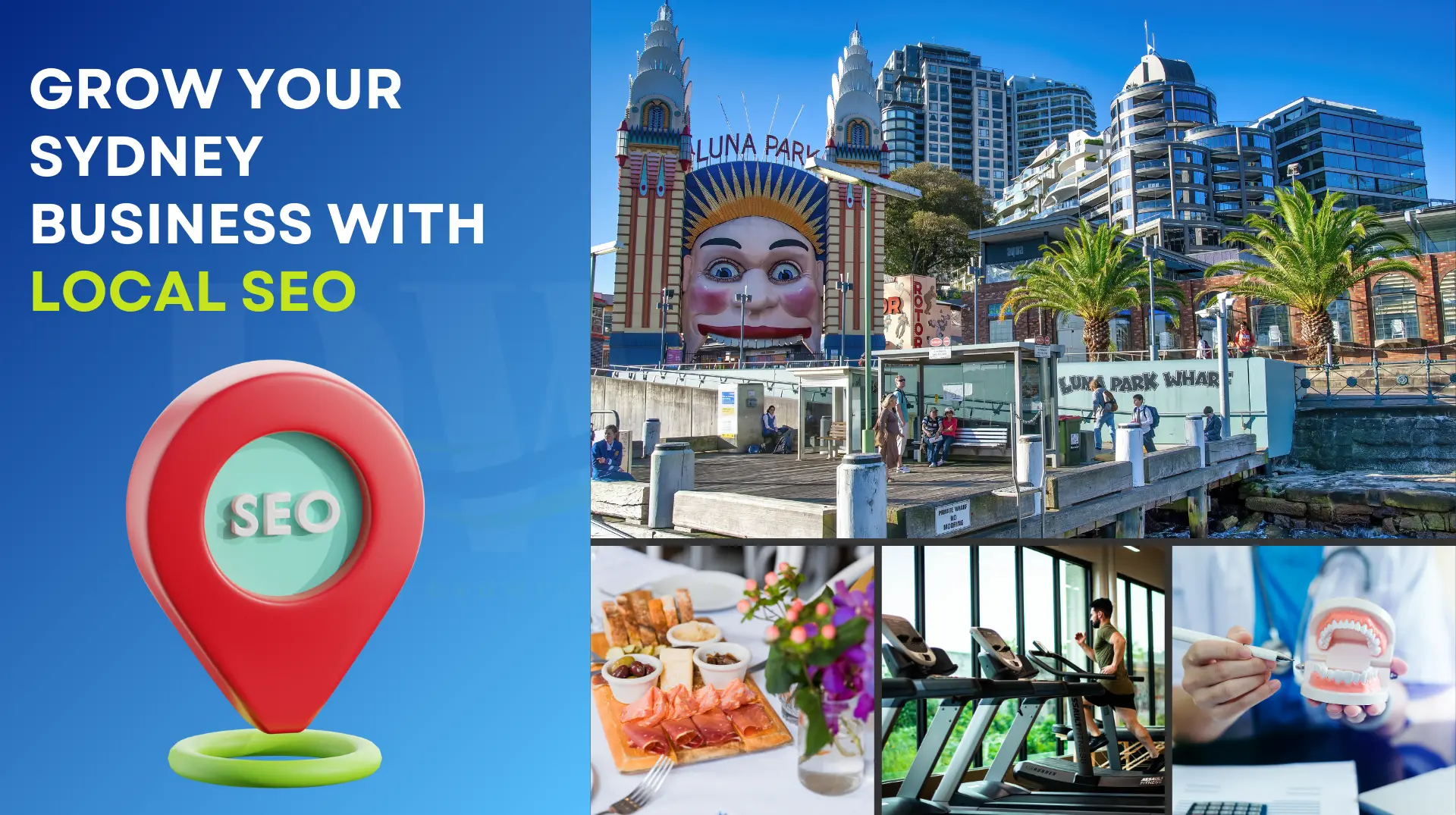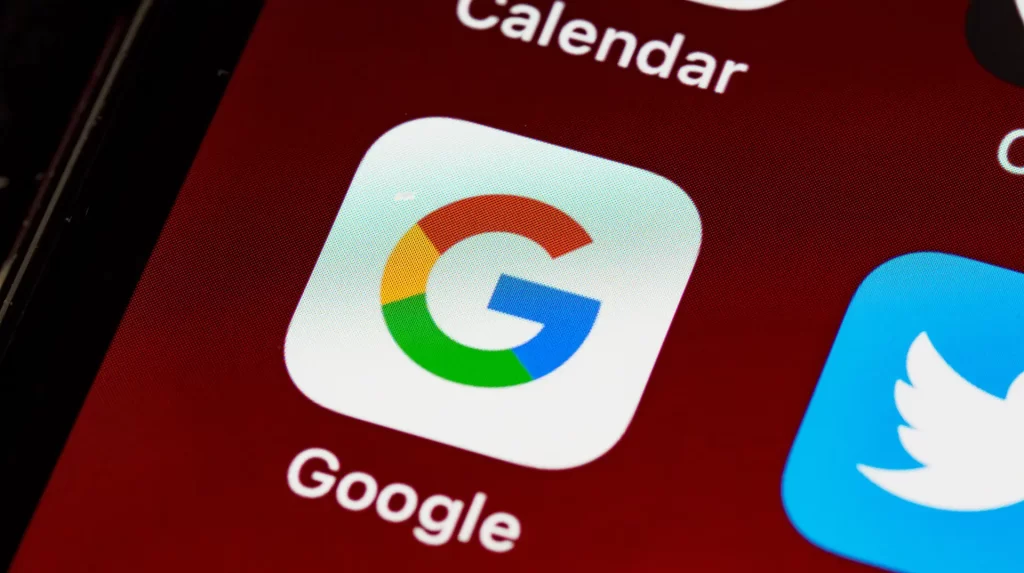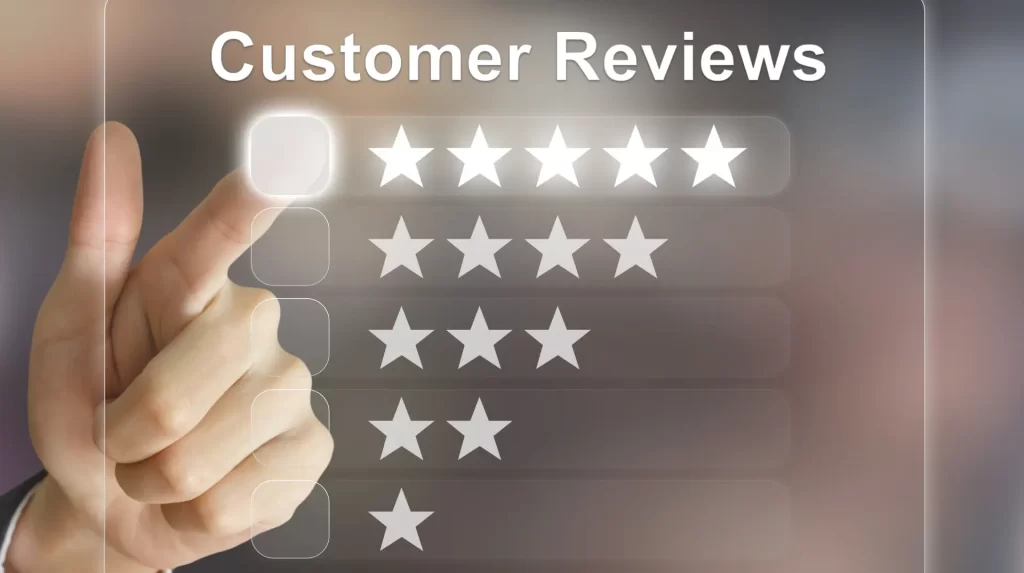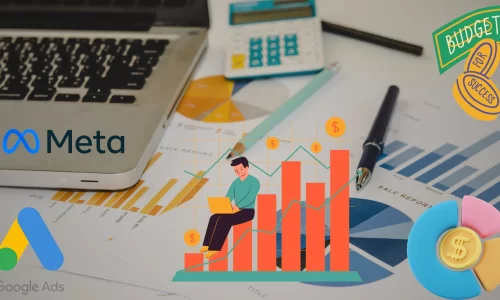
Why Every Sydney Business Needs Local SEO: Boost Visibility Now!
If you’re a business owner in Sydney, chances are you’re constantly looking for ways to stand out in this bustling, competitive market. That’s where local SEO comes in to save the day! Local SEO isn’t just another fancy marketing term—it’s a powerful strategy to get your business in front of potential customers right when they need you. Think of it like putting a virtual spotlight on your restaurant, cafe, gym, or dental clinic every time someone nearby searches for services like yours. It’s all about showing up at the right place, at the right time, and attracting the right customers to your doorstep!
Understanding Local SEO Basics for Sydney Businesses
Running a business in a lively city like Sydney can feel like navigating a maze. You’re offering a top-notch service, whether it’s a cozy café in Newtown, a fitness center in the CBD, or a bustling dental clinic in Bondi. But here’s the catch: getting noticed by the right people isn’t easy. You might be doing everything right—great products, a killer service, even a visually stunning website—yet, if locals can’t find you online, it’s like setting up shop in the middle of nowhere. That’s where local SEO comes in to save the day!
Local SEO is more than just adding keywords to your website. It’s a strategy that optimizes your online presence so that your business pops up when nearby customers are searching for services like yours. Imagine someone looking up “best breakfast spots in Darlinghurst” or “affordable dental clinics in Sydney.” Without local SEO, your business won’t even appear in these searches, no matter how good you are. Let’s dive into why understanding local SEO basics is essential for any Sydney business and how you can use it to your advantage.
Why Local SEO is a Must-Have for Sydney Businesses
Let’s talk about a typical challenge: You’ve spent countless hours and dollars perfecting your business, yet the foot traffic and inquiries are still low. Why? Because you’re probably not showing up where it matters—on Google’s local search results. If your business isn’t appearing in the “local pack” (those top three results that show up with a map when someone searches for a service near them), then you’re losing out big time. Most customers won’t scroll past the first page, and many won’t look past the top three.
Here’s another frustrating truth: Your competitors who do show up are likely raking in all the attention. If you own a café in Surry Hills and someone searches for “best café near me” but only sees other cafes listed, guess where they’re going? It’s not your café, unfortunately. So, what can you do about it? Focus on local SEO to bridge that gap. It’s not just about appearing in search results—it’s about showing up where your customers are actively looking.
How Local SEO Boosts Visibility and Credibility
Understanding local SEO starts with knowing why it’s different from general SEO. General SEO might help you rank globally or nationally, but if your customers are mostly in specific Sydney suburbs, you need a strategy that focuses on local visibility. This is especially true for businesses like dental clinics, gyms, educational consultancies, and cafes that rely on people walking through their doors. Local SEO ensures that when people in your area are looking for services like yours, you show up first.
One of the biggest benefits of local SEO is that it helps build credibility. When your business appears at the top of local search results, it sends a signal that you’re a trusted, popular option. Combine that with positive reviews, accurate business information, and an engaging Google My Business profile, and you’re on your way to being seen as the go-to choice.
Pain Point: Businesses often feel overwhelmed trying to figure out where to start. Maybe you’re not tech-savvy, or perhaps you’ve tried before but didn’t see results.
Solution: Start small! Begin by optimizing your Google My Business profile. Make sure all your details—name, address, phone number (NAP), website, and hours—are accurate and complete. Add high-quality photos of your business and respond to customer reviews regularly.
The Key Elements of Local SEO for Sydney Businesses
To break it down further, local SEO isn’t just about stuffing your website with location-based keywords. It involves several components working together to increase your visibility:
Google My Business (GMB) Optimization
Your GMB profile is like a mini-website that shows up in local searches and Google Maps. Filling it out completely and accurately is crucial. Include your business category, hours, location, services, and photos. Don’t forget to add posts about upcoming events or promotions to keep it fresh.
On-Page Optimization for Local Keywords
Optimize your website’s content using keywords specific to your location and industry. For example, if you’re a gym in Bondi, use phrases like “best fitness center Bondi” or “Bondi personal trainers.” Place these keywords strategically in your titles, headers, and throughout your content.
Building Local Citations
Local citations are mentions of your business’s NAP across other websites, like Yelp, Yellow Pages, and local directories. Consistency is key! Ensure your business information is identical across all platforms to build trust with Google.
Customer Reviews and Engagement
Reviews are a major ranking factor for local SEO. Encourage satisfied customers to leave positive feedback on Google, Yelp, or even Facebook. This not only improves your ranking but also builds trust with new customers. Responding to reviews (both good and bad) shows you value your customers and are engaged with your community.
Avoiding Common Local SEO Pitfalls
ocal SEO might sound straightforward, but there are some common mistakes that can derail your efforts. One of the biggest issues is inconsistent NAP—if your business name, address, or phone number varies even slightly across different sites, Google gets confused and may rank you lower. Make sure your NAP is exactly the same everywhere, from your website to your social media profiles.
Another common pitfall is ignoring mobile optimization. Most local searches happen on mobile devices, so your website needs to be mobile-friendly. If your site is slow to load or hard to navigate, users (and Google!) won’t be happy.
How Search Engines Rank Sydney Businesses: Getting Found in Your Local Suburb

If you’re running a business in a bustling city like Sydney, getting noticed by local customers is probably one of your biggest goals. Whether you own a cozy café in Newtown, a gym in Bondi, or a dental clinic in Chatswood, showing up at the top of Google search results can feel like a constant struggle. After all, what’s the point of having the best café if no one in your area can find you online?
The good news is, you’re not alone. Many local business owners in Sydney face the same challenge: getting Google to prioritize their business over competitors in the same suburb. Understanding how Google’s algorithm works for local searches is crucial if you want to rank higher. This section will break down how Google prioritizes local content for users searching in specific suburbs and what steps you can take to beat the competition.
What Does Google Consider for Local Searches?
Imagine someone in Sydney searches for “best fitness center near me” or “top dental clinic in Bondi.” Google doesn’t just pull up random results; it uses a highly complex algorithm that considers three key factors: Relevance, Proximity, and Prominence. Here’s what each one means:
- Relevance: How well does your business match what the user is looking for?
- Proximity: How close is your business to the searcher’s location?
- Prominence: How well-known and trusted is your business in the local community?
If your business doesn’t tick all three boxes, it’s likely to fall behind in the rankings. But don’t worry—there are ways to improve each of these factors and increase your chances of showing up in Google’s “local pack”—those top three listings that pop up with a map. Here’s how you can get Google to notice your business and bring more customers from your suburb right to your door.
Pain Point: Why Isn’t My Business Showing Up in My Suburb?
One of the most frustrating experiences for a local business owner is typing in “best café in Surry Hills” or “gym near me” and seeing competitors pop up first—even if your business is closer and offers better services. This is a common issue for many Sydney businesses, especially in highly competitive areas.
The problem often lies in Google’s Proximity factor. If a potential customer is standing just a few blocks away, but Google thinks a business three kilometers away is more relevant, guess who gets the spotlight? Not you. This often happens when your business’s online information isn’t optimized correctly, or you’re not using location-specific keywords effectively.
Solution: Make sure to use location-based keywords throughout your website and Google My Business (GMB) profile. For example, instead of just using “café” as a keyword, use “best café in Newtown” or “top-rated Bondi café.” Adding these keywords to your meta descriptions, service pages, and blog content can help Google understand exactly where you are and who you serve.
Using Location-Based Keywords to Boost Relevance
When Google ranks businesses, it wants to ensure it’s showing the most relevant results to the user. Relevance is all about whether your business is a good match for what the person is looking for. If someone is searching for a “digital marketing agency in Sydney,” and your site doesn’t mention Sydney or digital marketing specifically, Google will think your business isn’t a good fit—even if you offer those services.
Pain Point: Many Sydney businesses don’t use the right keywords or don’t use them enough. This means that Google doesn’t know where to place them, resulting in low visibility. Imagine running an educational consultancy in Hurstville, but your website only talks about general “consultancy services.” You’re missing a huge opportunity!
Solution: Use location-specific keywords on your website, social media, and Google My Business profile. Mention the exact areas you serve and create dedicated pages if possible. For example, if you own a dental clinic in Chatswood, create a page specifically for “Dental Services in Chatswood.” Not only does this make your business more relevant to local searches, but it also tells Google, “Hey, this is the business you’re looking for!”
The Role of Google My Business in Proximity and Prominence
nother huge factor Google considers is proximity—how close your business is to the person doing the search. This is why sometimes a smaller café just around the corner may rank higher than a larger, well-known chain that’s a bit farther away. If you haven’t optimized your Google My Business (GMB) listing, Google might not even know where exactly you’re located, and that’s a problem!
Pain Point: A common mistake businesses make is not fully optimizing their GMB profile. This includes missing business hours, lack of photos, or worse, inaccurate address information. Google uses GMB as a primary indicator of your location, so if your profile is incomplete, it could be costing you customers.
Solution: Fill out every detail in your GMB profile. Include your exact address, service area, business hours, and contact information. Add photos of your business, and make sure your location pin is in the right spot on the map. Respond to reviews regularly to show Google (and potential customers) that you’re active and engaged. The more complete and accurate your GMB listing is, the better Google will rank you for local searches.
Prominence: Building Authority and Trust Locally
The final piece of the puzzle is prominence—how well-known and trusted your business is in your suburb. Prominence is influenced by various factors, including customer reviews, local citations (mentions of your business on other websites), and even how often people talk about your business on social media.
Pain Point: Many small businesses don’t actively build their online reputation, thinking their excellent in-person service is enough. Unfortunately, in the digital world, what happens offline doesn’t always translate online.
Solution: Start encouraging your happy customers to leave positive reviews on Google. Join local directories and get listed on other Sydney-specific websites. Use platforms like Digital Wave or local community websites to increase your visibility and build your authority. The more your business is mentioned and linked to in your area, the more Google will see you as a prominent player.
Ranking your Sydney business in specific suburbs isn’t just about luck—it’s about playing by Google’s rules. By focusing on relevance, proximity, and prominence, and optimizing your location-specific keywords and Google My Business profile, you can improve your local visibility significantly. It’s time to put your business on the digital map and start showing up where your customers are actively searching. With a solid local SEO strategy, you can turn your business from a hidden gem into a local favorite!
The Role of Reviews & Ratings for Local Businesses: Why Your Reputation Matters
If you’re a local business owner in Sydney, you’ve probably noticed that online reviews have become a make-or-break factor in attracting new customers. But did you know that reviews don’t just influence what people think of your business—they can also affect how your business ranks on Google? Platforms like Google Reviews, Yelp, and Facebook play a huge role in determining your visibility and credibility in local search results. Whether you’re running a buzzing café in Newtown or a dental clinic in Bondi, reviews and ratings can be the deciding factor for your success.
Understanding how reviews impact your local rankings is essential, especially if you’re competing in a crowded market. It’s not just about getting five-star ratings; it’s about building a strong online reputation that both customers and search engines can trust. So, let’s dive into why reviews matter so much, how they influence your rankings, and what you can do to turn customer feedback into a powerful SEO tool for your Sydney business.
Why Reviews Are More Than Just Customer Opinions
Here’s a common misconception: reviews are only about customer feedback. While that’s true to an extent, reviews also act as signals to Google and other search engines. They indicate how credible, popular, and relevant your business is. The more positive reviews you have, the more Google sees your business as trustworthy, and the more likely it is to bump you up in local search results.
Think of reviews as a digital “word of mouth.” Let’s say you own a café in Surry Hills. A person searching for “best café in Surry Hills” is going to look at the top few options and probably choose one with glowing reviews. Even if your coffee is the best in town, if your competitors have more positive reviews and a higher average rating, guess where customers are going? Not your café, unfortunately.
Pain Point: Many local businesses provide excellent service but fail to showcase it online. Without a strong review profile, you might be missing out on a huge chunk of potential customers.
Solution: Encourage your happy customers to leave reviews on platforms like Google My Business, Yelp, and Facebook. Make it easy by providing direct links to your review pages and consider giving a small incentive like a discount or a freebie for their next visit. Just be careful to follow the guidelines of each platform—Google frowns upon outright bribing for reviews.
How Reviews Impact Local SEO Rankings

Now, let’s talk about how reviews affect your SEO. When someone searches for a business like yours—say, a gym in Bondi—Google’s algorithm looks at various factors to decide who ranks where. Reviews and ratings are one of the key factors in this decision. They influence not just whether you appear in the “local pack” (the top three listings that show up with a map), but also where you appear in general search results.
Google considers three things when it looks at your reviews:
- Quantity: How many reviews does your business have?
- Quality: What’s your average star rating?
- Freshness: How recent are your reviews?
If you’re a restaurant in Newtown with only five reviews from two years ago, you’ll struggle to compete against another restaurant with 100 reviews and a solid 4.5-star rating. Even if you have a higher star rating, the quantity and freshness of reviews are crucial. This is why you need a steady stream of new reviews to stay relevant and rank higher.
Pain Point: Many businesses get a few good reviews when they first open, but over time, customers stop leaving feedback, making the business look inactive or outdated.
Solution: Make asking for reviews part of your daily routine. Train your staff to suggest it after a positive interaction or follow up with customers via email. If you’re using a service like Digital Wave, you can even automate these reminders, making it easier to keep those reviews rolling in!
Handling Negative Reviews: Turning a Bad Situation into a Positive One
Nobody likes getting a negative review, but the truth is, even a well-run business will get one from time to time. Maybe it was a bad day, a misunderstanding, or just a customer who was impossible to please. Whatever the reason, negative reviews can actually hurt your local rankings if left unchecked. But there’s a silver lining: how you respond to a bad review is just as important as the review itself.
When you respond professionally and genuinely, it shows both Google and potential customers that you’re committed to providing a great service. Ignoring bad reviews, on the other hand, can make you look unresponsive or uncaring. Worse, a string of unanswered negative reviews can drag down your overall rating, pushing you lower in the search rankings.
Pain Point: Many business owners feel embarrassed or defensive when they get a bad review, so they either ignore it or respond poorly, damaging their online reputation even further.
Solution: Take a deep breath before responding. Thank the customer for their feedback, apologize if necessary, and offer a solution. This not only improves your relationship with that specific customer but also shows others that you take feedback seriously. Google likes to see active engagement, so responding to reviews—both good and bad—can boost your ranking.
The Snowball Effect: How to Get More Positive Review
The more reviews you have, the easier it is to get more. People are more likely to leave feedback when they see that others have done the same. It’s like a snowball effect—once you get the ball rolling, it keeps growing. Plus, reviews aren’t just for Google; they appear on other platforms like Yelp, Facebook, and TripAdvisor, increasing your visibility even further.
Pain Point: Many local businesses struggle to get their first few reviews, making them look less trustworthy compared to competitors with dozens or even hundreds.
Solution: Kickstart your review collection by reaching out to your loyal customers. Send a polite, personalized request asking for their honest feedback. Make it easy for them by providing links directly to your Google My Business or Yelp page. You can even include this in your email signature or on your receipts.
In the competitive Sydney market, reviews and ratings can be the difference between thriving and barely surviving. They’re not just for impressing potential customers; they’re a powerful tool for boosting your local search rankings. By focusing on building a strong online reputation, encouraging fresh reviews, and responding to feedback (even the bad kind), you can improve your visibility and attract more customers to your door.
So, don’t just wait for reviews to come in—be proactive! Make reviews a central part of your local SEO strategy and watch your business climb the ranks in Sydney’s vibrant marketplace
Optimizing Your Sydney Business Website for Local Search

Running a local business in Sydney is already a challenge, but making sure customers can find you online can feel even more overwhelming. You’ve got a great café, fitness center, or dental clinic, and you know you’re providing excellent service. But if your website isn’t optimized for local search, potential customers won’t even know you exist! This is where local SEO optimization comes in, ensuring that your site appears at the top of search results when people in your area are looking for businesses like yours.
But don’t worry—improving your site’s local SEO doesn’t require a computer science degree. With a few on-page and off-page optimization strategies, you can make your website more visible to Google and, more importantly, to the customers who matter most. Let’s break down the key steps to optimizing your Sydney business website for local search, so you can start bringing in more local traffic and outranking the competition.
On-Page Optimization: Making Your Website Speak to Google
When it comes to on-page SEO, think of your website as a book that Google needs to read and understand. You want to make it as easy as possible for Google to know who you are, what you offer, and where you’re located. If you’re not giving Google clear signals, it’s like handing a tourist a map without street names—totally confusing!
Here’s what you need to focus on:
Use Location-Specific Keywords
Make sure your website content clearly indicates where you’re located and what you offer. For example, if you own a fitness center in Bondi, use phrases like “Bondi fitness center” or “top gym in Bondi” naturally throughout your content. Use these keywords in your page titles, headers, meta descriptions, and even image alt texts. This tells Google exactly where to place you in local searches.Optimize Your Meta Tags
Your meta title and description are like the cover and blurb of a book. They need to catch the eye of both Google and your potential customers. Include your primary keyword and location. Instead of just saying “Best Gym,” say, “Best Gym in Bondi | Affordable Fitness Center Near You.” It’s concise, keyword-rich, and tells people exactly where you are.Create Location-Specific Pages
If your business serves multiple Sydney suburbs, consider creating separate pages for each area. For example, if you’re a dental clinic with branches in Bondi and Chatswood, create pages like “Dental Clinic in Bondi” and “Chatswood Family Dental Services.” This helps Google understand that you have a presence in different locations, and it improves your chances of ranking for each suburb.
Pain Point: Many Sydney businesses overlook these simple on-page tweaks, resulting in a website that’s beautifully designed but invisible in local searches.
Solution: Make a checklist of all on-page elements—meta tags, headers, content, images—and systematically optimize them with location-based keywords.
Speed and Mobile Optimization: Don’t Let a Slow Website Hold You Back
You’ve probably been there yourself—waiting for a website to load, and after a few seconds, you just click away. A slow-loading website is frustrating for users and a big no-no for Google. If your site is sluggish, it can negatively impact your local SEO rankings. And in today’s world, where most local searches happen on mobile devices, a slow or non-responsive site can send potential customers straight to your competitors.
Here’s how to speed things up:
Optimize Your Images and Media Files
Large images are one of the biggest culprits for slow-loading websites. Use tools like TinyPNG or ImageOptim to compress your images without losing quality. For videos, consider hosting them on platforms like YouTube and embedding them instead of uploading them directly to your site.Minimize Code and Enable Caching
If you’re not a techie, this might sound complicated, but it’s pretty simple with the right plugins. If your website is built on WordPress, use plugins like WP Rocket to enable caching and minify CSS and JavaScript files. This reduces the amount of data your site needs to load, making it faster.Ensure Your Site is Mobile-Friendly
Google has switched to mobile-first indexing, which means it considers the mobile version of your site as the primary version. Make sure your site is responsive and easy to navigate on mobile devices. Test it out by navigating your site on your phone. Can you read the text easily? Are the buttons clickable without zooming in? If not, it’s time to revamp your mobile design.
Pain Point: Many local business websites in Sydney are slow and difficult to navigate on mobile devices, causing them to lose both rankings and customers.
Solution: Use tools like Google’s PageSpeed Insights to identify what’s slowing your site down and fix those issues. A faster, mobile-optimized site means happier customers and better SEO.
Off-Page Optimization: Building Authority and Trust
Now that your on-page SEO is polished, it’s time to focus on off-page SEO—factors outside your website that influence your rankings. This mainly involves building trust and credibility through backlinks, citations, and customer reviews.
Create Quality Backlinks
Backlinks are like votes of confidence for your website. The more high-quality sites that link to your business, the more Google sees you as a trustworthy local authority. Reach out to local Sydney bloggers, directories, or even news sites to get featured. If you’re using a digital marketing agency like Digital Wave, they can help you identify good link-building opportunities.List Your Business in Local Directories
Sign up your business in as many reputable local directories as possible, like TrueLocal, Yellow Pages, and Hotfrog. Ensure your Name, Address, and Phone Number (NAP) is consistent across all listings. Inconsistent NAP info confuses Google and can harm your local rankings.Encourage Customer Reviews
Reviews are a huge ranking factor for local SEO. Encourage happy customers to leave a review on Google My Business or Yelp. Not only do they build trust with new customers, but Google also considers them when ranking local businesses.
Pain Point: Many Sydney businesses lack backlinks or have incorrect information listed in directories, which hurts their credibility and local ranking.
Solution: Regularly audit your business listings and aim to build new backlinks every month. A steady flow of backlinks and reviews will improve your prominence, a key factor in Google’s local ranking algorithm.
Indexing and Crawling: Making Sure Google Can Find You
Even if you have the best website in the world, it’s useless if Google can’t find it. Indexing and crawling are the processes Google uses to explore your site and add your pages to its database. If your site isn’t properly indexed, it won’t show up in search results.
Submit Your Sitemap to Google Search Console
Your sitemap is like a roadmap for Google. Submitting it to Google Search Console helps Google understand your site’s structure and index your pages faster.Fix Broken Links and 404 Errors
Broken links and 404 errors can disrupt Google’s crawling process. Use tools like Screaming Frog to identify and fix these issues. This not only improves your SEO but also creates a better user experience.Use Internal Links
Help Google navigate your site by linking to other relevant pages within your own website. For example, if you have a “Dental Services in Bondi” page, link to it from your homepage and other relevant service pages. This strengthens your site’s internal structure and boosts your SEO.Optimizing your Sydney business website for local search isn’t a one-time task—it’s an ongoing effort. By fine-tuning your on-page SEO, speeding up your site, building authority through off-page strategies, and ensuring proper indexing, you’ll create a website that not only ranks higher but also delivers a fantastic user experience.
Remember, local SEO is about being visible and being found by the right people. With these tips, your business will be ready to dominate Sydney’s local search results, attract more customers, and stand out from the crowd!
Wrapping It Up: Why Local SEO is the Key to Success for Sydney Businesses
Local SEO is no longer an optional strategy—it’s a necessity if you want your Sydney business to thrive in a competitive market. Whether you’re managing a café in Surry Hills, a dental clinic in Bondi, or a gym in the CBD, local SEO helps you connect with the right customers right when they’re searching for what you offer. It’s not just about ranking higher on Google; it’s about becoming the go-to choice for people in your area.
By optimizing your website with local keywords, improving your site speed, getting customer reviews, and building strong backlinks, you’ll create a digital presence that’s hard to ignore. Remember, each step you take—whether it’s polishing your Google My Business profile, creating location-specific content, or responding to reviews—brings you closer to dominating the local search results. And with tools like Digital Wave at your side, implementing these strategies can be a smooth and rewarding process.
So, start small, stay consistent, and watch as your business transforms from just another listing into a local favorite!
Related Posts

- admin
- October 15, 2024
Meta Ads vs. Google Ads: Budgeting for Small Business
When deciding between Meta Ads vs Google Ads for budgeting, small businesses need to consider h ..
